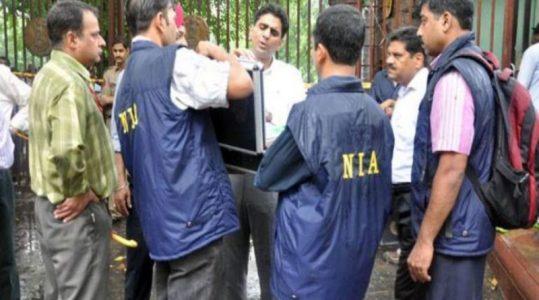
National Investigation Agency (NIA) to question Imam in south Kashmir’s Tral
The National Investigation Agency (NIA) is in Kashmir to question an Imam in south Kashmir’s Tral.
Saqib, one of the 11 accused traveled to Kashmir in search of weapons.
According to sources, Saqib who was the right hand of Mufti Mohammed Suhail, the kingpin of the group, was given the task of arranging weapons for the ISIS terror module. He went to Jammu and Kashmir twice- First in May to North Kashmir’s Bandipora and also went to Rajouri. The second time he went to Tral to meet an Imam in August. The Imam from Ameerabad was called to Awantipora by a team of the National Investigation Agency(NIA).
According to the local police, Saqib and the young Imam were said to have done their religious studies together in Amroha.
Saqib Iftekar, a resident of Hapur in Uttar Pradesh was himself working as an Imam in Jama Masjid, Baksar. According to sources, Saqib who knew the Imam from Kashmir traveled to south Kashmir for a meeting, where he allegedly expressed a desire to meet a militant in Kashmir to procure weapons. The NIA team believes though the Imam showed his inability to procure weapons, promised for arranging a meeting with a militant.
The sources said that NIA has found links to Kashmir in the ISIS-inspired module styled as Harkat-ul-Harb-e-Islam”. The earlier seized items include 25 kg of explosive material, country- made rocket launcher, 112 alarm clocks, mobile phone circuits, batteries, 51 pipes, remote control car triggering switch, wireless digital doorbell for remote switch, steel containers, electric wires, 91 mobile phones, 134 SIM cards, 3 laptops, knife, sword, ISIS-related literature and a cash amount of Rs 7.5 lacs approximately.
Meanwhile, the investigating team identified four men – Abu Bashir Al Khurasani, Anas aka Talha, Zubair aka Abu Dujana and Zaffar Abu aka Al Kitab.
The instructions from the foreign handler, who is still to be identified, was that they create a group on Telegram (an internet-based messaging app) every morning and delete the same. They were also instructed to buy smartphones with removable batteries to avoid detection by agencies. A modus operandi where the IP address could be traced through.
Source: India Today





